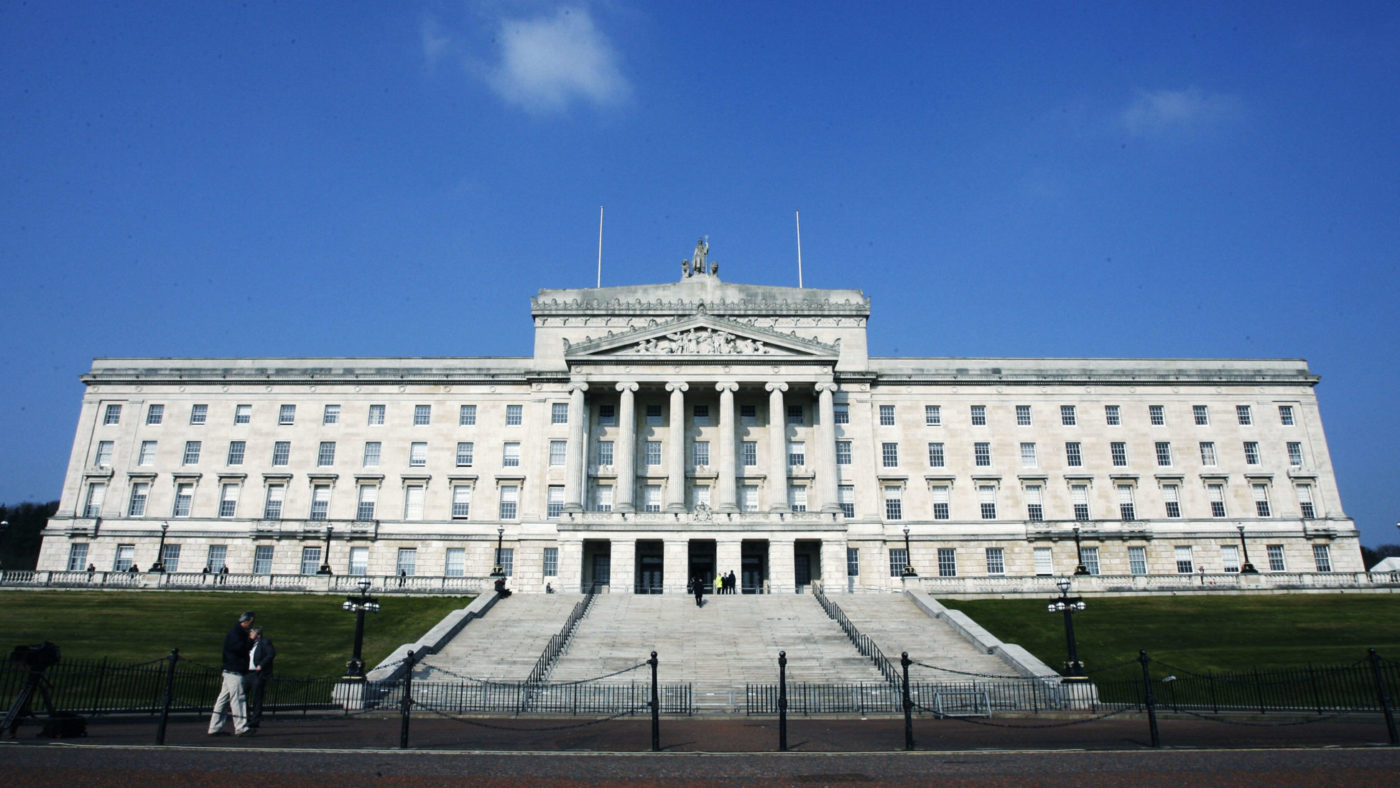Today Northern Ireland reaches a milestone of sorts, as it matches Belgium’s record of 589 days without an elected government. Some concerned citizens have organised a series of rallies to mark the occasion, using the hashtag #WeDeserveBetter (because every campaign has to have a hashtag these days), but the most common response is likely to be apathy.
It’s not that there’s a shortage of political passion in Northern Ireland right now, but it’s usually reserved for demands for a border poll and a debate around social issues that is so overheated it makes power-sharing much more difficult to revive. The absence of devolved government creates serious difficulties with everyday decision making, particularly because the courts have now moved to curtail civil servants’ powers, but there’s little expectation that a restored Assembly would tackle the province’s problems successfully.
When the Stormont institutions operated, there was public cynicism about the merit of having politicians “on the hill”. That attitude has hardened into disdain for MLAs who “aren’t doing their jobs” but continue to draw full salaries for, essentially, manning constituency offices and issuing press releases. There is widespread disbelief that the secretary of state for Northern Ireland, Karen Bradley, has refused obstinately to cut Assembly members’ entitlements, almost 600 days after they last sat.
Northern Ireland’s executive departments certainly need oversight from ministers who can be held accountable by elected representatives, but many people are indifferent to whether this direction comes from Stormont or Westminster. Under pressure from Dublin and Ulster’s nationalist parties, the government has so far refused to introduce genuine direct rule, instead allowing civil servants to run public services and stepping in occasionally, for instance, to provide Northern Ireland with a budget or ensure that rates can be collected.
It was inevitable, with departments left effectively to run themselves, that senior officials would start to make judgements with political significance, normally made by ministers. This is exactly what happened, and the rudderless system continued with relatively little controversy until May this year, when the High Court blocked planning approval for a controversial waste incinerator plant, ruling that civil servants did not have the authority to take the decision.
At the subsequent appeal, the Lord Chief Justice and two other appeal court judges were more explicit in their judgement, “any decision which… would normally go before the minister for approval lies beyond the competence of a senior civil servant in the absence of a minister.”
The attorney general, John Larkin, has asked the Supreme Court to clarify this ruling, but it adds considerable uncertainty to Northern Ireland’s governance and makes even the boring, routine work of running the province look suddenly more complicated. The government’s determination to keep Ulster in a type of limbo until an executive can be formed, somewhere between devolution and direct rule, seems less and less like a durable position.
Back in February, it appeared that the two largest parties at Stormont, the DUP and Sinn Fein, were close to an agreement to restore power-sharing. Theresa May even flew into Belfast to close out the negotiations. Then, unexpectedly, Arlene Foster announced that discussions had concluded unsuccessfully and there were “serious and significant gaps” between the DUP and Sinn Fein over an Irish Language Act, which was one of a lengthy list of “red line” demands that republicans said must be met before they would return to government.
At a recent intergovernmental conference, the British and Irish administrations announced their intention to reboot talks between the parties in the autumn, but the divisions separating the DUP and Sinn Fein look deeper than even. Even if they can set aside their differences and strike a deal, it’s unlikely that the resulting executive will agree to implement a meaningful, effective programme of policies.
Northern Ireland’s political institutions have been suspended with monotonous regularity since they were formed in 1998, under the provisions of the Belfast Agreement. When the province has enjoyed short spells of stable regional government, the parties engaged in a lot of self-congratulation, but made little progress on integrating a divided society, revitalising the economy or reforming public services.
If devolution is restored, it may have symbolic significance, but it’s unlikely to solve many of the difficulties affecting Northern Ireland. A long list of talks and agreements since 1998 allowed power-sharing to lurch on unsteadily, without addressing any of the underlying problems that caused instability in the first place.
A spell of direct rule from Westminster is the only way that long-delayed decisions about the province’s antiquated health service and inefficient education system are likely to be implemented. It may also help get around some of the charged social debates, like same-sex marriage and abortion, that have poisoned public discourse and made Northern Ireland seem more divided than at any time since the Troubles.
If Northern Ireland deserves better, direct rule seems like a more robust option in the short term, because restoring devolved government at Stormont is likely to deliver only more of the same.


